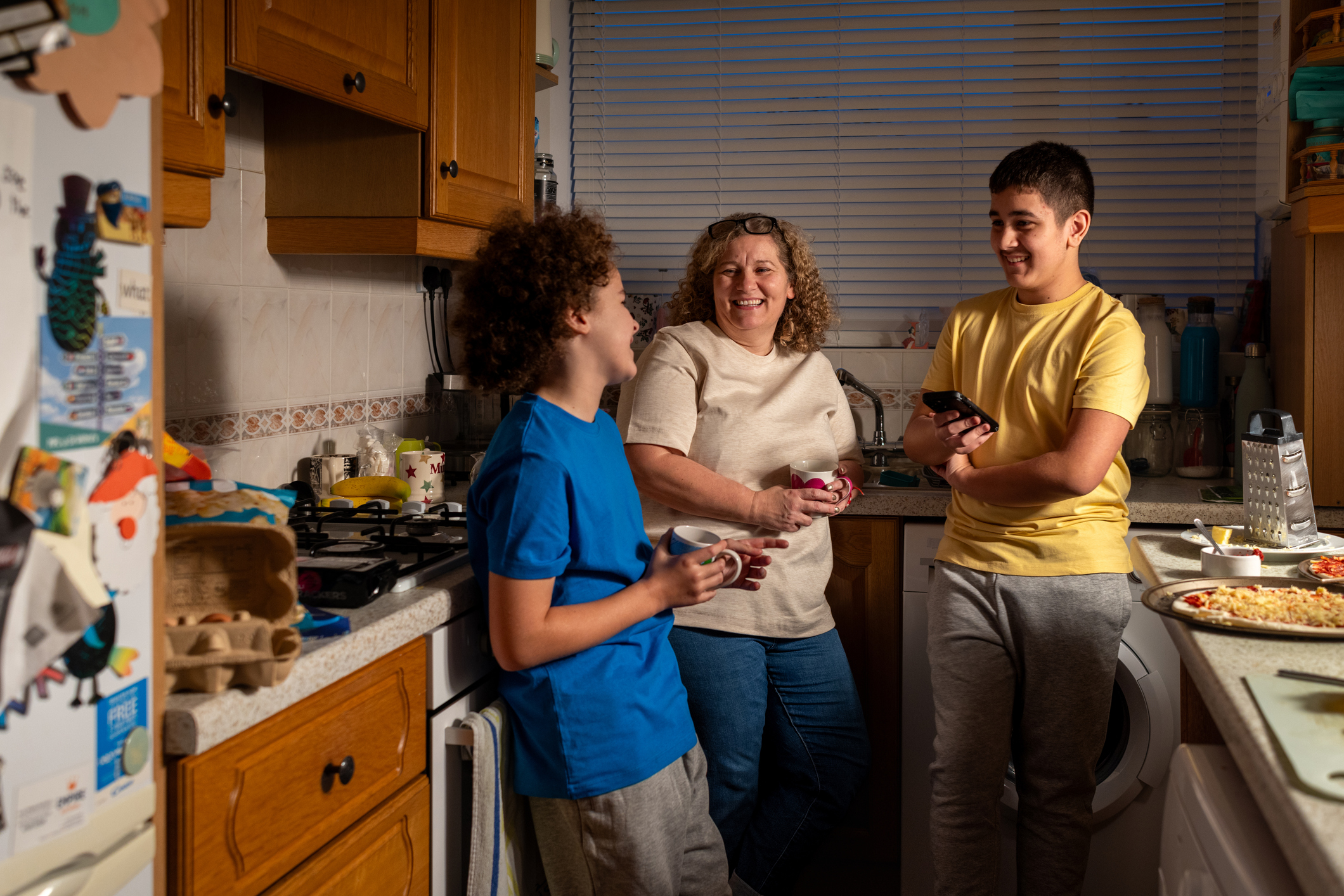Talking Openly with Teens: A Proven Way to Prevent Underage Drinking

As a parent or guardian, nothing is more important than keeping your child safe. Building a strong, honest relationship can make all the difference. According to the 2023 State of Underage Drinking in North Carolina survey, 93% of teens believe that open family communication can prevent underage drinking.
At Talk it Out NC, we’ve seen how open family communication is one of the strongest ways to help North Carolina teens make safer choices. Talking openly with teens helps them feel seen, supported, and safe —even when discussing tough topics like alcohol. You don’t need to be perfect to make a difference. You just need to be present and willing to start the conversation.
Why Conversations Matter More Than Scare Tactics
For many teens, the conversation about underage drinking revolves around horror stories of traffic accidents or gruesome images in driver’s ed class. Parents have used scare tactics with the best of intentions to communicate the severity of the topic. After all, alcohol misuse comes with real risks, especially for growing bodies and brains.
However, teens are more likely to listen and respond when they feel respected, not lectured. Research has repeatedly shown that open, fact-based conversations produce significantly better results than scare tactics to prevent underage drinking.
Many teens believe they already know everything about alcohol, but what they learn from movies, social media, or friends isn’t accurate. Some teens think drinking alcohol helps them fit in. Others think everyone is doing it. In fact, most underage students don’t drink alcohol. The 2023 National Survey on Drug Use and Health (NSDUH) found that only 27.9% of young people aged 12 to 20 drank alcohol within the past year. That’s why it’s important for trusted adults to talk openly and share real facts.
Talking often—and starting early—can prevent alcohol misuse before it begins. Teens who learn about the risks of alcohol and drugs from their parents are less likely to drink while underage.
What’s more, many parents don’t realize how early underage drinking can begin. According to a study conducted in Pitt County, N.C., teens on average take their first drink at 14 years old. Even if your child isn’t interested in alcohol right now, that doesn’t mean they’re not hearing about it. Start conversations early so your child knows what to do when the moment comes.
The Most Powerful Prevention Tool is You
You are your child’s first and most powerful role model. As our Talk it Out Ambassadors have traveled North Carolina, we’ve found that parents believe they’re not qualified to discuss alcohol misuse with their children. But you don’t need a degree in biology or psychology to prevent underage drinking. You just need to stay involved, show love, listen to their ideas and concerns, and set clear expectations.
Family structure—like routines, regular meals, and shared time—also helps reduce the chance of underage drinking. According to the National Institute on Alcohol Abuse and Alcoholism (NIAAA), teens who feel close to their parents are more likely to avoid alcohol use.
Here are some things you may already be doing to have a strong, steady presence in your child’s life:
- Making time for one-on-one moments: A five-minute talk on the way to practice can make a big difference.
- Praising the effort, not just the outcome: Even when your child messes up, recognize what they did well.
- Respecting their growing independence: Let them make small choices, while guiding the big ones.
- Being consistent: If you set a standard, stick to it. Knowing the expectations and that consequences will be enforced creates a sense of security and dependability for your children. Teens respect when your words match your actions.
What to Say and How to Say It
You may wonder where to start when it’s time to talk about underage drinking. Many adults worry they’ll say the wrong thing. But remembering a dialogue is the key to fostering open communication.
Asking your teens questions and actively listening to their response is a much more powerful way to create an environment for discussing challenging subjects than simply reciting facts. Remember that open, honest, respectful, and non-judgmental conversations not only deepen your bond but also teach your child healthy ways to communicate in all their relationships.
Instead of saying, “You better not drink,” try:
- “What have you heard about alcohol from your friends?”
- “How do you think drinking affects someone your age?”
- “What would you do if someone offered you alcohol?”
Ask open-ended questions to encourage your teens to think and talk, not just listen. What if your teen asks, “Did you drink when you were younger?” Be honest. Don’t glorify it, but don’t lie either. Share what you’ve learned and how it shaped your choices.
Most importantly, focus on safety, health, and long-term goals. Make it about how they can protect their future, not just follow the rules.
Change Your Teen’s Future Today
Remember, you don’t have to be an expert to influence your teens. Show up, speak up, and let them know that you care.
Every time you talk, even if it feels awkward—you build trust. And trust helps keep your child safe. Don’t wait for the “perfect moment.”
You’re the most important voice your child will hear. When you prioritize open family communication, you’re doing your part to prevent underage drinking. Download our conversation starters and talk it out today.



